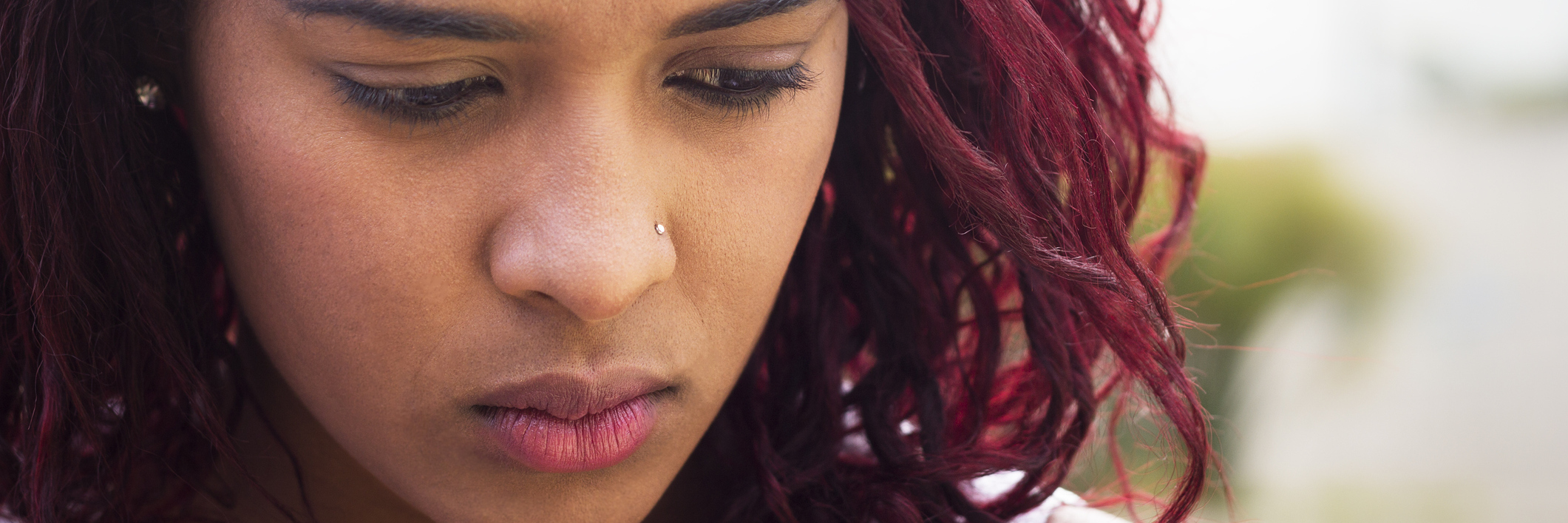For some reason, many people think that a person who struggles with depression is sitting at home crying; or maybe it’s like the movies where the person is sitting on the couch watching TV and eating a bowl of ice cream; or better yet, the person is looking out of a window and it’s raining outside to further imply how the person is feeling. I’m very hesitant when a person says that they are “depressed” because it is a serious illness and should be treated as such. Sometimes I think people are actually sad and can’t differentiate the two. While I do not believe in discrediting the way anyone feels because it has been done to me on numerous occasions, I want people to truly understand depression verses experiencing sadness, which is a more common emotion. While there is some gray area between the two, I believe there is a clear difference.
Let’s start with sadness. Sadness is a common human emotion. It might be triggered by an event that is hurtful, shocking or challenging — such as a breakup. But when something good happens, the sadness fades away. For example, your significant other leaves for an extended period for work or your car breaks down and you don’t have the money to pay for it; either one of these situations have the potential to make you sad. You’re human. It’s normal to feel sad when life happens. But once you get the money to repair your car or your significant other returns home, you find that you bounce back easily. My point is that an event or experience happened that triggered your sadness and once the experience has changed for the better, your sadness faded away.
So what is the difference between sadness and depression? A person who struggles with depression can certainly experience sadness, but it is more than just the “blues.” An event might trigger the depression, such as the loss of a job that leaves you unable to take care of yourself or your family. But the difference is, a person can get a new job and still be depressed. Or maybe it’s been six months after your love one has passed and no matter what you do you can’t “shake” this feeling. That’s why saying things like, “Just snap out of it,” or, “Some people have it worse than you,” is irrelevant, and to be honest, is also insensitive and minimizes the illness.
I also don’t think asking a person why they are depressed is a good approach. A person struggling with depression might not be able to “turn it on or off.” Depression is an emotional state and it affects your perception, thoughts and behaviors. Unlike sadness, depression does not always require an event to happen for a depressive episode to be triggered. In fact, I have found many cases where people appear to be fine “on paper” because they have “the American dream” of financially stability, good education and a beautiful family and home, yet they are still depressed.
According to the National Alliance of Mental Illness (NAMI), the cause of depression is unknown, but trauma, genetics, life circumstances, drug or alcohol abuse, medical conditions and brain changes trigger the illness. For some, depression might be a lifelong chronic illness, while others might only experience it once in their life. It can sometimes requires treatment such as therapy and medication. There are many symptoms listed in the Diagnostic and Statistical Manual of Mental Disorders (DSM), the severity of which can vary from person to person.
Here are some of the symptoms I’m familiar with:
- Sleeping too much or too little.
- Rapid weight loss or weight gain.
- A change in appetite.
- Fatigue.
- Slowed down movements or feeling restless most days.
- Feeling tired, sluggish or like you have no energy.
- Having suicidal thoughts.
- Having a hard time concentrating and making decisions.
- A loss or decrease in interest in activities that you usually enjoy.
- Feelings of worthlessness or excessive guilt and isolation.
Here are some questions I would ask myself to check if I’m struggling with depression:
- Are your sleeping and eating routine the same or did they change?
- Do you still enjoy the things that make you happy?
- Are your emotions triggered by a specific event? If the event changed for the better, does your mood get better?
- Have you had thoughts about harming yourself?
- Do you have difficulty concentrating?
- Have you had a loss of energy for no specific reason?
I hope people begin to understand the difference between sadness and depression and begin to become more cautious before using the word “depressed.” I also hope that anyone who is struggling with depression seeks medical treatment. If you or someone you know is struggling, there is help and you are not alone.
If you or someone you know needs help, visit our suicide prevention resources page.
If you need support right now, call the National Suicide Prevention Lifeline at 1-800-273-8255, the Trevor Project at 1-866-488-7386 or text “HOME” to 741-741. Head here for a list of crisis centers around the world.
Thinkstock photo via jaguarblanco

